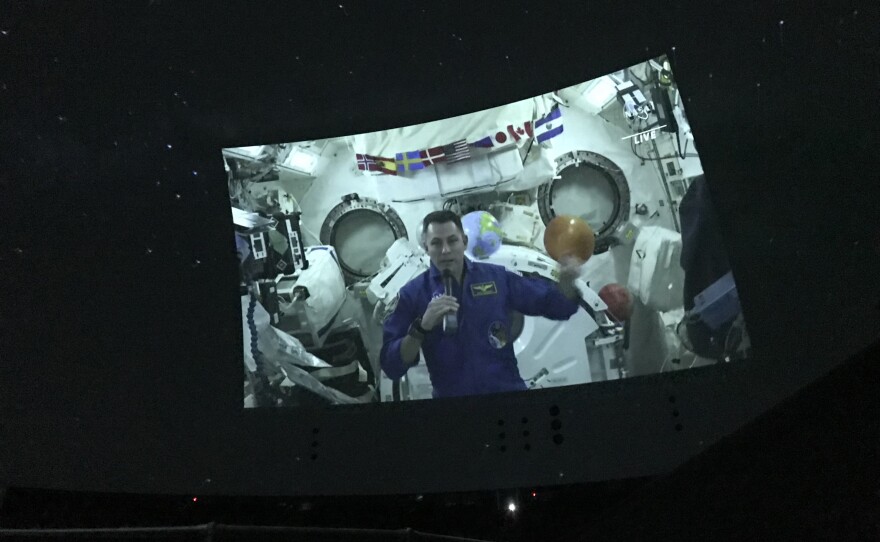A NASA astronaut visited with Rochester students in a call from the International Space Station on Friday morning just as the ISS passed over Rochester and the Great Lakes.
Astronaut Josh Cassada, a former University of Rochester student, answered questions from elementary students at the Rochester Museum & Science Center’s Strasenburgh Planetarium.
Questions like: What if astronauts don’t get along?
“We work really hard at NASA to make sure that we understand each other and that we are able to work together well,” Cassada said. "We do a bunch of training … and we put ourselves in situations that are not super comfortable ... and we figure out a way to make sure that we're able to talk about that and make sure we don't create a problem that really doesn't need to exist.”
As he floated 260 miles above the Earth, Cassada described what it’s like living in space.
“We see a sunrise and a sunset 16 times during the day,” Cassada said. “So right now it happens to be daylight.”
Fourth-grader Soliannys Morales was surprised that her pre-recorded question was the first Cassada answered. She said while her own ambitions are Earth-bound and artistic, the experience was illuminating.
“I thought it was never sunrise or sunset. I just thought it was always dark,” Soliannys said.

Soliannys’ teacher, Charles Hall, had retired during the early pandemic, but returned as a long-term substitute with the same class for two years. He said moments like this can be transformative for students.
“Just seeing this is out there, that these types of careers are out there, these are things to aspire for,” Hall said.
“I think that's just a wonderful thing that our kids don't always get exposed to,” he added. "We get kind of bogged down with reading scores and math scores that are important. But also seeing that there's something to use with these (subjects), how much math is used with science and things like that.”
Cassada also showed students how he makes a peanut butter and jelly sandwich while floating in space — a mundane task made extraordinary by the lack, but not absence, of gravitational pull.
He said he hopes his work on the International Space Station will help pave the way for others to explore deep space.
Steve Fentress, director of the Strasenburgh Planetarium, says it took breaking through a lot of red tape to make this event happen, but he hopes there will be more like it in the future.
“We want to work with the rest of the community to see if there are any obstacles to any kid pursuing their interest, developing their talent. We clear those obstacles.”



